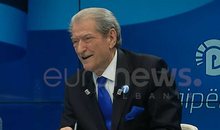
 Flash News
Flash News
Police officer in Kukës is raped, he is cut off under his house and beaten with hard objects
100 days or 16 years?
Saranda/ Election materials arrive for May 11 under police and military supervision
Student falls from second floor of school in Gjirokastra
From the maritime agreement with Greece to the Rama-Soros connection, Berisha speaks about the Greek media
Analysis: Will the new leader of Hezbollah seek negotiations with Israel?
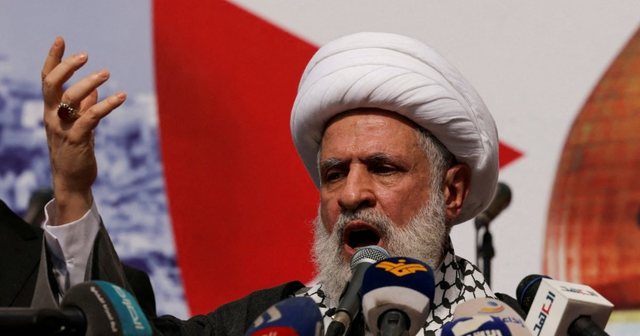
The Lebanese armed group, Hezbollah, on October 28 named Naim Qassem as secretary general, choosing him from a small pool of candidates. Qassem, who had served as Hezbollah's deputy secretary-general since 1991, succeeds longtime leader Hassan Nasrallah, who was killed in a major Israeli airstrike on September 27. Nasrallah's expected successor, Hashem Safieddine, was also assassinated by Israel a week later, leaving the group with no choice but to appoint Qassem.
Hezbollah - which also has a political party represented in Lebanon's Parliament - is designated a terrorist organization by the United States, although the European Union has only its armed wing blacklisted. Qassem is often credited with leading Hezbollah's efforts to transform itself from merely a militant armed group into a dominant political force in Lebanon, as he has focused his writings primarily on the group's ideological and religious foundations rather than strategy. military.
The appointment of an experienced political figure could suggest that Hezbollah is preparing for talks with Israel to end the current conflict, although Israel has shown no sign of wanting to meet. Born in 1953 in the southern Lebanese town of Kfar Fila, Qassem joined Hezbollah in the early years of the group's founding in the 1980s. Although not a founding member, he quickly rose through the ranks of the group and was appointed deputy secretary to Abbas al-Musawi, who was then head of Hezbollah and one of the founders.
After Musawi's death in an Israeli operation a year after his appointment, Nasrallah was elected the new leader of Hezbollah, and Qassem retained his position. Like Nasrallah, Qassem also has very close ties with Tehran. Unlike his predecessor, however, his trips to Iran have not been secret. He is often photographed with Iranian officials and traveled to Tehran in July to attend the inauguration of President Masoud Pezeshkian.
The United States designated Qassem a "designated global terrorist" in 2018 and subsequently imposed sanctions on him as part of a broader war against Hezbollah's financial network. Leading the group's political efforts, Qassem has been engaged in organizing Hezbollah's political campaigns since the group began participating in parliamentary elections in 1992.
Qassem has been instrumental in shaping Hezbollah's ideological and religious stance, often writing about the group's political and religious foundations. He published a book in 2005 titled "Hezbollah: The Inside Story," which aimed to provide an inside look at the group's founding and its goals, including the war against Israel.
Hezbollah has suffered severe blows in recent months as Israel continues to cripple its military capabilities and eliminate its leaders. Qassem is virtually Hezbollah's only known figure beyond Lebanon's borders. While Hezbollah's Shura Council did not have much choice in naming Nasrallah's successor, Qassem's appointment could also signal the group's willingness to end the conflict with Israel.
"By not choosing a military figure, but choosing Naim Qassem, Iran and Hezbollah are preparing for the end of the current war with Israel," Lina Khatib, director of the Middle East Institute at the School of Oriental and African Studies at the University of Washington, wrote in X. London.
"Hezbollah needs an experienced political mediator at the top to prepare the ground for political negotiations with its opponents," she added.
But Israel's Defense Minister, Yoav Gallant, quickly ruled out diplomacy with the Iran-backed group, writing in X about Qassem's appointment: “ Temporary appointment. It won't last "./ REL
Latest news

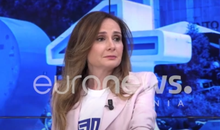
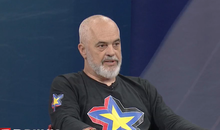

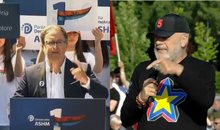
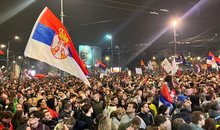
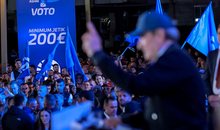
Berisha-Rama: The burner that was never lit will burn your political career
2025-05-06 21:24:49
Berisha from Durrës accuses Sakos and Gjushi: Terrorists of the elections
2025-05-06 21:13:15

The election materials of May 11 also arrive in Lezha
2025-05-06 20:53:44
Serious Challenges to Providing Doctors in Rural Areas in Kosovo and Albania
2025-05-06 20:37:55

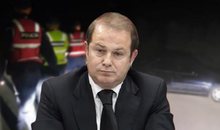

Two riders die in tragic accident during Superbike race at Oulton Park
2025-05-06 19:46:35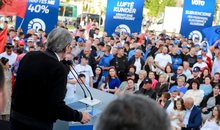

He parachuted in Himara, Police take action against Jonathan Islam
2025-05-06 19:30:33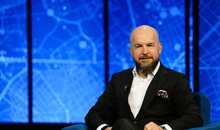
100 days or 16 years?
2025-05-06 19:12:46
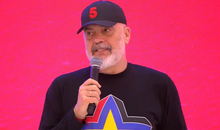


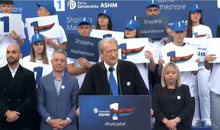

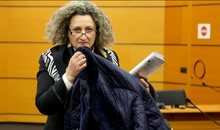

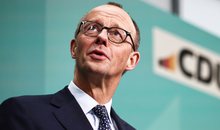
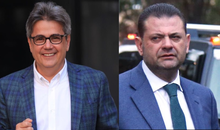

Bardhi akuzon drejtorin e Policisë Fier: Po pengon fushatën e PD
2025-05-06 17:17:22
Scandal/ Eduart Shalsi campaigns inside the Kukës police station
2025-05-06 16:56:02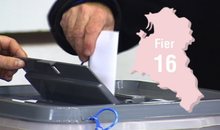
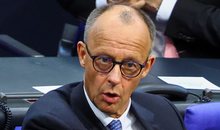
CDU leader Friedrich Merz elected German chancellor in second round
2025-05-06 16:32:52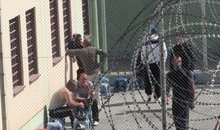
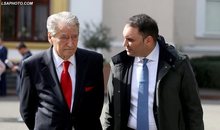
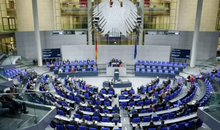


A suspect for espionage is detained in Kosovo!
2025-05-06 15:47:34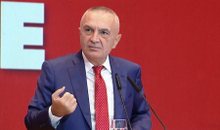
Meta: After May 11, new projects to heal the wounds of misgovernment
2025-05-06 15:37:29
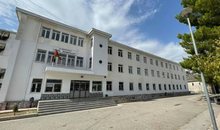
Student falls from second floor of school in Gjirokastra
2025-05-06 15:14:37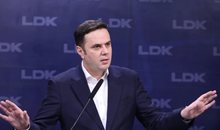
LDK proposes transitional government
2025-05-06 15:03:19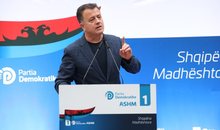
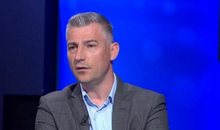
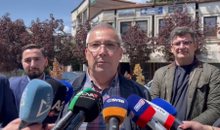
Incident in Korça, court releases Bledion Nallbat's brother
2025-05-06 14:27:19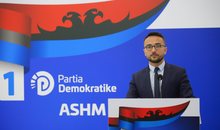
Kopliku: The vote on May 11 for the DP-ASHM is the deserved punishment for Rama
2025-05-06 14:21:23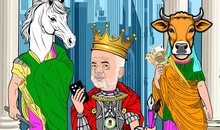
"Revival Caligula", Bujar Kapexhiu's gem of a caricature about Rama
2025-05-06 14:12:06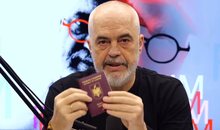
Rama's former negotiator, Zef Mazi, rejects EU passport propaganda
2025-05-06 14:07:43
The president of the Forza Italia senatorial group supports Berisha on May 11th.
2025-05-06 13:57:57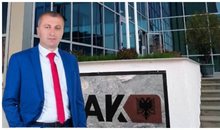
The Appeal Court of Appeal declares the mayor of Devoll, Eduard Duro, innocent.
2025-05-06 13:52:33
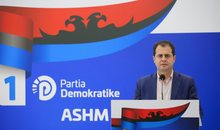
May 11th Elections, Bylykbashi: Extend the validity period of documents
2025-05-06 13:29:39
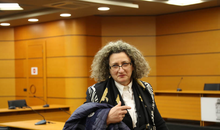
Convicted in Greece, after SPAK DP request to ILD: Dismiss judge Irena Gjoka
2025-05-06 13:09:35
Electoral crimes, SPAK takes stock: 115 reports have been filed so far
2025-05-06 13:00:37
Quarrel between two families in Has, two people injured
2025-05-06 12:53:08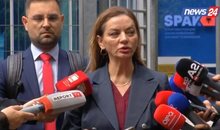
Voice before SPAK: I do not withdraw from the accusations against Vilma Nushi
2025-05-06 12:33:33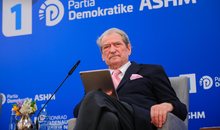
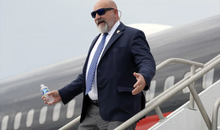

"Giro d'Italia" in Albania, here's how car traffic changes in Tirana
2025-05-06 12:04:17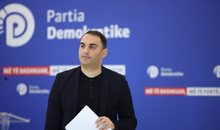
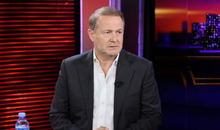
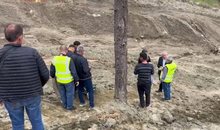
The collapse of the massive chrome mine, still no sign of the old man in Klos
2025-05-06 11:29:31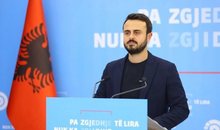
Xhaferri: Crime gangs work for the MPs they want
2025-05-06 11:19:53
Zhupa in Ksamil: 'The Maldives of Europe' turned into a trash can
2025-05-06 11:10:55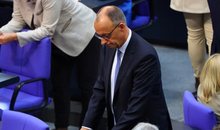
Merz fails to be elected German chancellor
2025-05-06 11:00:00
The fall of the euro is boosting imports in quantity, increasing by 14% in 2024
2025-05-06 10:56:33
Accident in Roskovec, two passengers injured
2025-05-06 10:47:36
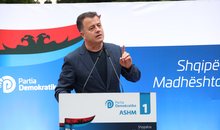

DP denounces election crimes in Peshkopi to SPAK
2025-05-06 10:18:20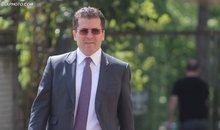
The hearing against Mediu is postponed, due to Irena Gjoka's medical report.
2025-05-06 10:08:50
Two accidents in Elbasan, 1 victim and 2 injured reported
2025-05-06 09:52:26
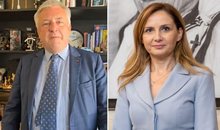
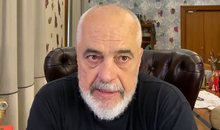
Rama pressures citizens: Either vote for the SP, or don't vote at all
2025-05-06 09:15:00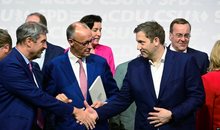
From defense to immigration, what does the new German government promise?
2025-05-06 09:08:42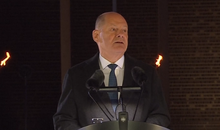
After 1,245 days in office, Scholz steps down as chancellor
2025-05-06 08:55:38


'Vote Exchange': Shkodra between the PS-PD rivalry and the "Doshi" factor
2025-05-06 08:29:28
Horoscope, what do the stars have in store for you today?
2025-05-06 08:23:05
Rain returns, what is the weather expected to be like during the day?
2025-05-06 08:06:41
Morning Post/ In 2 lines: What mattered yesterday in Albania
2025-05-06 07:50:44
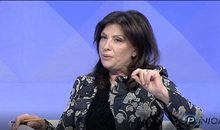
Topalli: Small parties have no chance of getting a mandate
2025-05-05 22:42:40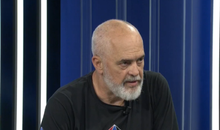
SP officials in prison for corruption, Rama: We are not a law firm
2025-05-05 22:36:42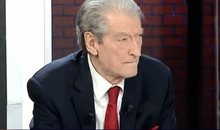
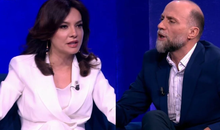

Soul-touching hours: Discover when we are saddest and happiest during the day
2025-05-05 21:47:20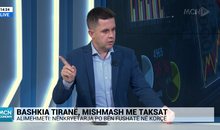
Alimehmeti: DP in Tirana gets more than 12 mandates
2025-05-05 21:34:33


Berisha: Rama knows Dibra as much as Toni Gogu knew Hajredin Pasha
2025-05-05 21:01:00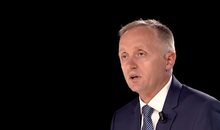
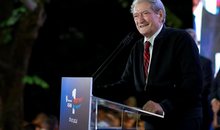
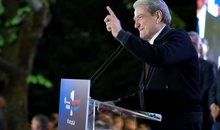



27-year-old drunk driver hits police officer in Peshkopi
2025-05-05 19:50:14
